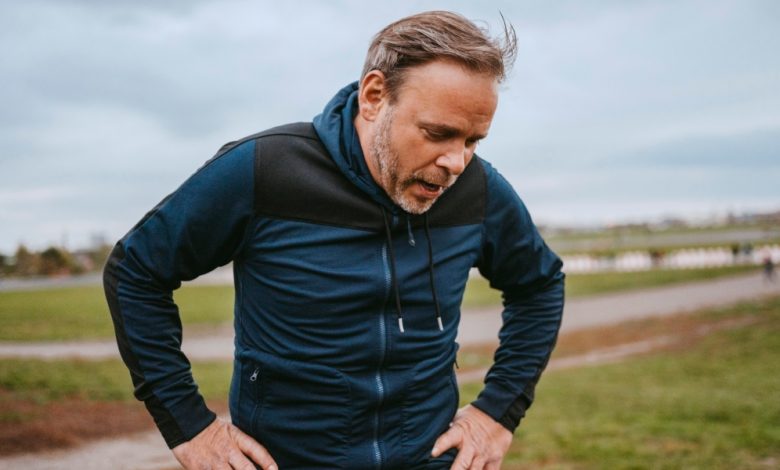Is this Long COVID or am I just getting older?

You are middle-aged and have new symptoms after your COVID infection – fatigue, brain fog, joint pain. Is it long COVID? Or are you just getting older?
If you’re wondering, you’re not alone.
“It’s one thing,” said Dr. Alba Miranda Azola, co-director of the long-running COVID clinic at Johns Hopkins University School of Medicine wealth.
Given that the world has seen just under 650 million officially registered COVID cases – and that about 10% of the world’s population is 65 years of age or older – aging and long COVID are bound to overlap heavily. This is especially true against the background that the aging process is already noticeable for many in early middle age.
As patients get older, “I think it gets a little bit muddy,” Azola said.
There are currently no official diagnostic criteria for long COVID. Even the definition of the condition varies depending on who you speak to, although they are generally new symptoms that begin during or appear after COVID infection and last for weeks or months.
Complications, symptoms, and timing of aging can vary widely due to genetic and environmental factors. Therefore, it’s not possible to say definitively whether your new symptoms are due to aging or long COVID, both or neither, say Azola and other experts.
“Could it be long COVID? The short answer is yes,” she said. “But it’s difficult to figure out if it’s long COVID or if other things are contributing.”
A ‘chicken or the egg?’ dilemma
With more than 200 identified symptoms — from a persistent cough and fatigue to ear deafness and a “brain on fire” feeling — long COVID is undoubtedly not one, but multiple conditions, experts say.
Many contend that True Long COVID is best defined as a chronic fatigue syndrome-like condition that develops after COVID infection, similar to other post-viral syndromes that occur after infection with herpes, Lyme disease, and Ebola, among others can.
Other post-COVID complications, such as organ damage, shouldn’t be defined as long COVID and fit better under PASC’s larger umbrella category, experts say. Also known as COVID-19 post-acute sequelae, the term is used to encompass a variety of COVID outcomes, from chronic, fatigue-like symptoms and subsequent heart disease to permanent lung damage and strange new symptoms like urinary incontinence, itching, and skin lesions.
Signs of aging can overlap with a long COVID, or at least feel like it. According to the World Health Organization, in addition to fatigue, these include back and neck pain, arthrosis, chronic obstructive pulmonary diseases and dementia.
Officially diagnosed or not, nearly 60% of the world’s population is estimated to be infected with COVID, according to the University of Washington’s Institute for Health Metrics and Evaluation. Now that the majority of the world’s citizens have experienced the virus, it is difficult to determine what new symptoms and conditions the virus has caused or contributed to, said Dr. Nir Goldstein, a pulmonologist at National Jewish Health in Denver who runs the hospital’s long-running COVID clinic.
“From a clinical perspective, it becomes difficult to temporally define causality,” he said wealth.
Timing as Tell
Symptoms of aging tend to come on gradually, said Dr. Panagis Galiatsatos, an assistant professor in Johns Hopkins Department of Pulmonary and Critical Care Medicine who has been treating long-term COVID patients Wealth. Not so with long COVID.
“There’s really a big difference between ‘before I felt this way’ and ‘after I felt this way,'” he said of long-term COVID symptoms after a COVID infection. “I don’t get too many people confusing their symptoms with aging.”
“Many patients will tell you they feel like they’ve aged post-COVID,” he added.
Azola has many older patients who have been less active over the past two years due to pandemic restrictions and now complain that exercise exhausts them. Less activity during the pandemic — not the virus — could be to blame for at least some of its symptoms, she said.
“The older population experiences a mix of decreased activity during years of isolation and then deconditioning,” she said.
“Most respond well to more physical approaches to increasing activity,” or physical therapy, she said.
For now, it doesn’t matter what’s causing your symptoms, experts say, as no treatments have been approved specifically for long COVID. Doctors treat the symptoms regardless of the cause.
Eventually, the cause of the symptoms could play a role as the exact mechanisms behind Long COVID are determined and treatments are developed, Goldstein said.
“But at this point, practically, it doesn’t,” he said.
Our new weekly Impact Report newsletter explores how ESG news and trends are shaping the roles and responsibilities of today’s leaders. Subscribe here.



